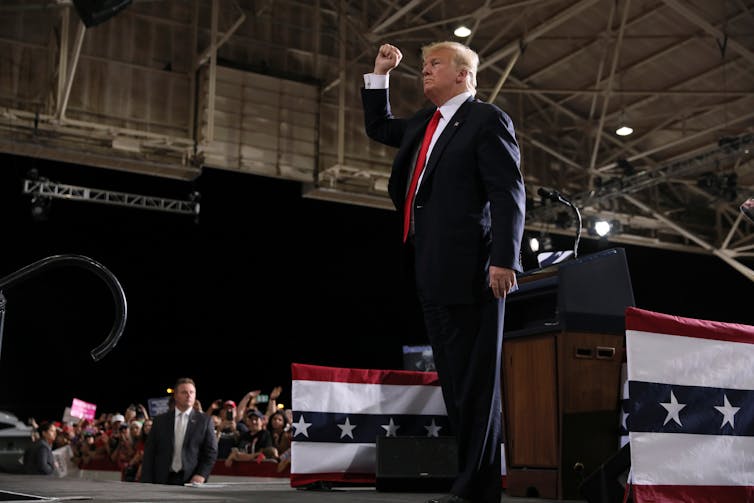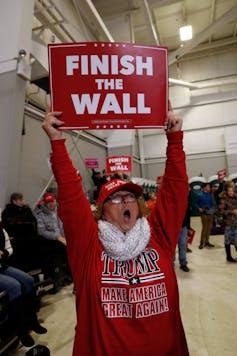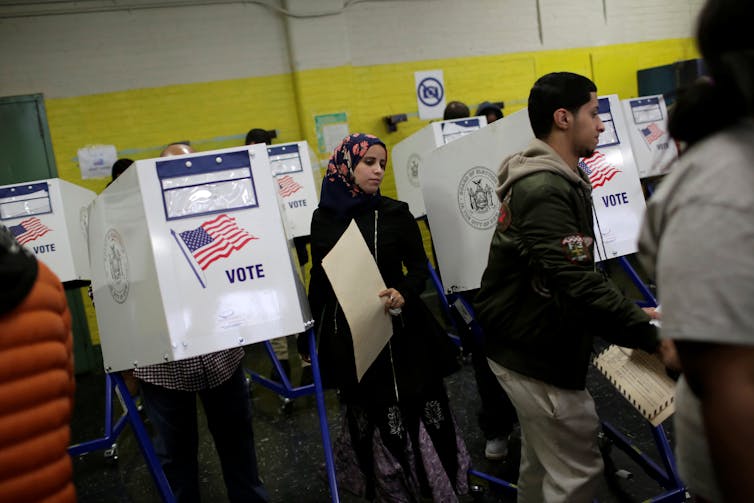The midterm elections are approaching all through one of many essential polarized moments in present American politics.
A collaborative evaluation problem I led on polarized democracies all around the world examines the processes by which societies divide into political “tribes” and democracy is harmed.
Based totally on a study of 11 nations along with the U.S., Turkey, Hungary, Venezuela, Thailand and others, we found that when political leaders stable their opponents as immoral or corrupt, they create “us” and “them” camps – known as by political scientists and psychologists “in-groups” and “out-groups” – inside the society.
On this tribal dynamic, all sides views the other “out group” celebration with rising distrust, bias and enmity.
Perceptions that “Should you occur to win, I lose” develop. Both aspect views the other political celebration and their supporters as a danger to the nation or their way of life if that totally different political celebration is in vitality.
For that motive, the incumbent’s followers tolerate additional illiberal and an increasing number of authoritarian habits to stay in vitality, whereas the opponents are more and more extra ready to resort to undemocratic means to remove them from vitality.
This damages democracy.
Are People now caught in animosity and anger that may undermine democracy, or can the nation pull out of it?

Jonathan Ernst
Politicians divide
Our evaluation finds that excessive polarization is affected by three main components.
First, it is often stimulated by the rhetoric of political leaders who exploit the true grievances of voters. These politicians choose divisive factors to concentrate on with the intention to pursue their very personal political agenda.
In several phrases, what a frontrunner says is as crucial as what she or he does.
Since launching his advertising marketing campaign, President Donald Trump has vilified so-called exterior enemies harking back to “authorized and rapist” Mexican immigrants, terrorist Muslims and abroad allies out to empty America’s coffers by way of “unfair commerce deficits.” Now, the president is specializing in internal enemies.
He has famously labeled the media “the enemy of the people” and never too way back accused the Democrats of unleashing an “offended mob” unfit to manage.
Such unprecedented assaults by a president of the US appeared designed to discredit his critics and delegitimize his political opponents. Nonetheless moreover they set off the dynamics of polarized politics by reinforcing the notion that politics is an “us versus them” contest.
By August 2017merely eight months after Trump took office, three-quarters of Republicans had damaging views of Democrats, and 70 % of Democrats thought-about Republicans negatively.
This was an enormous enhance in distinction with the mid-Nineteen Nineties, when about 20 % of each celebration had unfavorable views of the other celebration.
Way more disturbing for democracy, roughly half of voters of each celebration say the other celebration makes them actually really feel afraid, and rising numbers view the insurance coverage insurance policies of the totally different celebration as a danger to the nation.
America’s present political polarization did not begin with Trump. It has been rising as a result of the Nineteen Nineties and accelerated beneath President Barack Obama, when the Tea Event formed in response to his election, and bipartisanship broke down inside the Congress.
By 201645 % of Republicans felt threatened by Democratic insurance coverage insurance policies, and 41 % of Democrats thought-about Republican insurance coverage insurance policies as a danger, up virtually 10 components in merely two years.
Our evaluation reveals that in extreme polarization, people actually really feel distant from and suspicious of the “totally different” camp. On the same time, they actually really feel loyal to, and trusting of, their very personal camp – with out analyzing their biases or factual basis of their data.
Although it’s a frequent phenomenon prolonged acknowledged by social psychology, it is far more pronounced inside the age of social media 24-hour data cycles and additional politicized media outlets who repeat and amplify the political assaults.
Most dangerously, phrases can unleash exact violence by avid supporters in quest of approval from the chief or simply impressed to carry out an assault in the direction of the designated “enemy,” as we observed when supporters of Hugo Chávez in Venezuela attacked a media mogul whom Chávez had labeled public enemy main.
Equally, remaining week an avid Trump supporter despatched pipe bomb mailers to distinguished Trump opponents, and the killings in a synagogue in Pittsburgh have been carried out by an individual who used associated language to Trump’s assertion that the U.S. was being invaded by a caravan of Central People.
Polarization, though, is a two-way avenue.

Reuters/Kevin Lamarque
Both aspect now
How the political opposition reacts is the second challenge explaining the impression of polarization on democracy.
If the opposition returns the bitter rhetoric with associated political hardball and demonizing language, they risk locking in place a cycle that leads to entrenching the politics of polarization.
A perceived political win would possibly in actuality present to be an eventual defeat.
That occurred in 2013 when the Democratic Event modified the long-standing rule that nominees to federal judgeships wished 60 Senate votes to complete debate and switch to a affirmation vote.
To beat Republican obstruction beneath Obama, the Democrats who held a majority inside the Senate on the time abandoned that rule and decreed that solely 51 votes could possibly be wished for all federal judgeships – moreover the Supreme Courtroom docket.
Lastly the majority celebration turns into as quickly as as soon as extra the minority. That’s what occurred when Republicans gained the majority in 2014 and blocked Obama’s remaining nomination for a Supreme Courtroom docket justice.
When Democrats retaliated by filibustering Trump’s first nominee for the Supreme Courtroom docket, the Republican Event escalated the battle and abolished the century-old filibuster rule even for one of the best courtroom inside the land. They accredited Justice Brett Kavanaugh with solely a single Democratic vote.
Backing away from polarization
The third, and most robust, obstacle is what our evaluation found regarding the underlying basis of polarization.
When nations polarize spherical rifts that replicate unresolved debates present on the nation’s formation, then that polarization is most actually to be enduring and harmful.
The U.S. was primarily based on unequal citizenship rights for African-People, Native People and girls. As these groups reasserted their rights inside the Nineteen Sixties civil rights movement and the Nineteen Seventies girls’s movementpolarization spherical these rights and altering group standing grew.
The equivalent is true for the rising vary of religion, gender and ethnicity inside the workplace and society as a result of the Eighties, which has flip into an added polarizing downside in U.S. politics.

REUTERS/Saul Martinez
Can the U.S. overcome the dynamics of polarization, the place certain phenomena – divisive and demonizing rhetoric, tit-for-tat political retribution and long-standing unresolved rifts – lead to diminished democracy?
Our evaluation reveals that primarily essentially the most democratic of actions – participating in elections – is strictly the issue to do to help cut back polarization.
To stay away from deepening the state of division and distrust that seems to pervade our society, every political leaders and residents ought to play a part. Merely withdrawing from politics simply is not environment friendly.
Residents can defend themselves and their democracy by being aware of the political and psychological workings of polarization and the early warning indicators of democratic erosion.
They are going to refuse to participate inside the lure of demonizing politics, whereas insisting on voting massively in the direction of those who use polarizing methods.
Political leaders must be acutely conscious that their phrases and actions can advance, forestall or reverse excessive polarization.
For a lot of who prioritize profitable for his or her crew above all, the conclusion that they’re going to lastly be the losers of their re-engineered tips must be sobering – whether or not or not it is eliminating the filibuster inside the U.S. Senate or one of the best to gerrymander electoral districts.
For a lot of who’ve a broader perspective focused on the collective pursuits and welfare of the society, understanding the logic of polarization that blocks cooperative problem-solving would possibly instill the braveness to cross the divide moderately than reciprocate pernicious polarizing strategies.
The ultimate phrase decision to depolarize the contentiousness spherical nationwide id and citizenship rights that divides the U.S., nonetheless, requires addressing these debates head-on.
With a spirit of inquiry, generosity and openness, moderately than blame and vilification, the U.S. can switch earlier the bitter divisions that threaten the democratic foundations of the nation.
